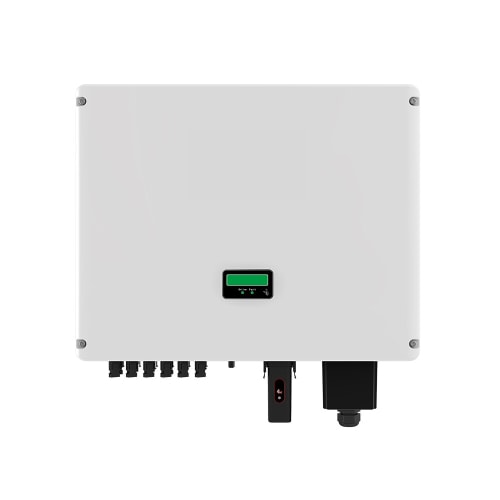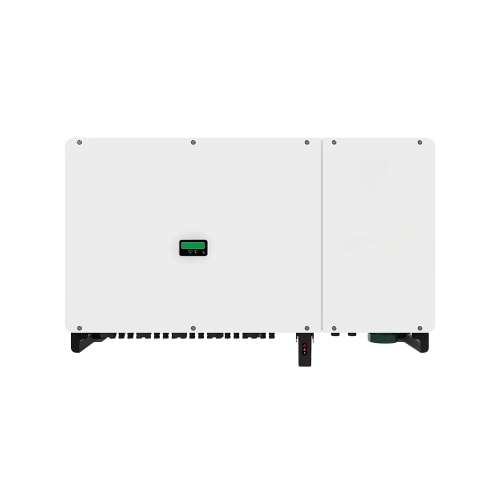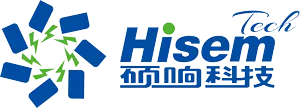消息
欢迎来到我的博客!
在深入探讨内容之前,我希望您能关注我的社交媒体平台,我会在那里分享更多见解、与社区互动并发布最新动态。您可以通过以下方式与我联系:
Facebook:https://www.facebook.com/profile.php?id=61576738655239
现在,让我们一起踏上旅程。希望您觉得这里的内容富有洞察力、引人入胜且价值非凡。
目录
介绍

The global shift toward renewable energy has placed solar power at the forefront of sustainable solutions. A critical component in any solar energy system is a solar inverter, which plays a pivotal role in optimizing energy usage. By converting direct current (DC) generated by solar panels into alternating current (AC) for household or grid use, this device ensures that clean energy is harnessed effectively. Hisem, a leading manufacturer of solar panels, hybrid inverters, and energy storage batteries, emphasizes the importance of advanced inverter technology in achieving energy efficiency. This blog explores how a solar inverter enhances energy savings, reduces costs, and supports environmental goals through innovative design and functionality.
What Is a Solar Inverter and How Does It Work?
A solar inverter is the heart of a solar power system. Solar panels produce DC electricity from sunlight, but most household appliances and the electrical grid operate on AC. The inverter bridges this gap by transforming DC into usable AC power. Beyond conversion, modern inverters, such as those produced by Hisem, incorporate smart technologies like maximum power point tracking (MPPT) to optimize energy output. This ensures that even under varying weather conditions, the system captures the maximum energy possible from the panels, improving overall efficiency.
Key Functions of a Solar Inverter
- DC-to-AC Conversion: Ensures compatibility with home appliances and grid requirements.
- Energy Optimization: Adjusts voltage and current to maximize power output.
- System Monitoring: Tracks performance and identifies issues in real time.
- Grid Interaction: Manages energy flow to and from the grid, especially in hybrid systems.
Why Energy Efficiency Matters in Solar Systems
Energy efficiency is a cornerstone of sustainable living. Inefficient systems waste valuable resources, increase costs, and undermine the environmental benefits of solar power. A solar inverter addresses these challenges by minimizing energy losses during conversion and distribution. For example, Hisem’s hybrid inverters are designed to reduce conversion losses, ensuring that more of the energy generated by solar panels reaches your home or business. By prioritizing efficiency, these devices help lower electricity bills and reduce reliance on fossil fuels, contributing to a greener planet.
How a Solar Inverter Boosts Energy Savings

One of the primary benefits of a solar inverter is its ability to enhance energy savings. Advanced inverters optimize the performance of solar panels by ensuring that they operate at their peak efficiency. Technologies like MPPT allow the inverter to adapt to changing sunlight conditions, extracting more power from the panels. Additionally, hybrid inverters, such as those offered by Hisem, can integrate with energy storage systems to store excess energy for later use, further reducing dependence on grid electricity and lowering costs.
Reducing Energy Losses
Energy losses occur during the conversion from DC to AC, but high-quality inverters minimize these losses. For instance, Hisem’s inverters achieve conversion efficiencies of up to 98%, meaning nearly all the energy generated is usable. This high efficiency translates to significant savings over the lifespan of the solar system.
The Role of Hybrid Inverters in Energy Efficiency
Hybrid inverters take efficiency to the next level by combining the functions of a traditional inverter with energy storage capabilities. These devices allow users to store surplus energy in batteries for use during peak demand periods or at night. Hisem’s hybrid inverters are engineered to seamlessly manage energy flow between solar panels, batteries, and the grid, ensuring optimal usage. This flexibility not only improves efficiency but also provides resilience against power outages and fluctuating energy prices.
Benefits of Hybrid Inverters
- Energy Storage: Store excess solar energy for later use.
- Grid Independence: Reduce reliance on utility companies.
- Cost Savings: Use stored energy during high-rate periods.
Comparing Solar Inverter Types and Their Efficiency
Different types of inverters—string, micro, and hybrid—offer varying levels of efficiency. String inverters are cost-effective for large systems but may lose efficiency in shaded conditions. Microinverters optimize each panel individually, improving performance in complex installations. Hybrid inverters, like those from Hisem, combine conversion and storage capabilities for maximum efficiency. The table below outlines key features of these inverter types to help you understand their impact on energy efficiency.
| Inverter Type | Efficiency Range | Best Use Case | Key Features |
|---|---|---|---|
| String Inverter | 95–97% | Large, unshaded systems | Cost-effective, centralized control |
| Microinverter | 96–99% | Small or shaded systems | Panel-level optimization |
| Hybrid Inverter | 97–98% | Systems with storage | Energy storage, grid interaction |
This table highlights how choosing the right inverter type can enhance the efficiency of your solar system, depending on your specific needs.
Environmental Benefits of Using a Solar Inverter
By improving energy efficiency, a solar inverter contributes to environmental sustainability. Efficient inverters ensure that more clean energy is utilized, reducing the need for fossil fuel-based power. Over time, this lowers carbon emissions and mitigates climate change. Hisem’s commitment to eco-friendly technology ensures that its inverters are designed with sustainability in mind, helping users achieve their green energy goals while minimizing their environmental footprint.
Common Challenges and Solutions with Solar Inverters

While a solar inverter is essential for efficiency, it can face challenges like overheating, compatibility issues, or reduced performance over time. High-quality inverters address these through robust design and advanced features. For example, Hisem’s inverters include cooling systems to prevent overheating and are compatible with a wide range of solar panels and batteries. Regular maintenance and monitoring can further ensure long-term performance, keeping your system efficient and reliable.
Tips for Maintaining Inverter Efficiency
- Regular Inspections: Check for dust or debris that may affect cooling.
- Software Updates: Keep firmware updated for optimal performance.
- Professional Servicing: Schedule periodic maintenance with certified technicians.
结论
A solar inverter is indispensable for achieving energy efficiency in solar power systems. From optimizing energy output to integrating with storage solutions, these devices play a critical role in reducing costs and environmental impact. Hisem’s advanced inverters, including hybrid models, offer cutting-edge technology to help you harness solar energy effectively. Ready to improve your energy efficiency? 联系我们 at Hisem to explore our innovative solar solutions and start saving today.
常问问题
What is the main function of a solar inverter?
A solar inverter converts DC electricity from solar panels into AC electricity for home or grid use, ensuring efficient energy utilization.
How does a solar inverter improve energy efficiency?
It optimizes power output through technologies like MPPT and minimizes conversion losses, ensuring more energy is used effectively.
Are hybrid inverters more efficient than traditional inverters?
Yes, hybrid inverters enhance efficiency by integrating energy storage, allowing you to use stored energy during peak times.

